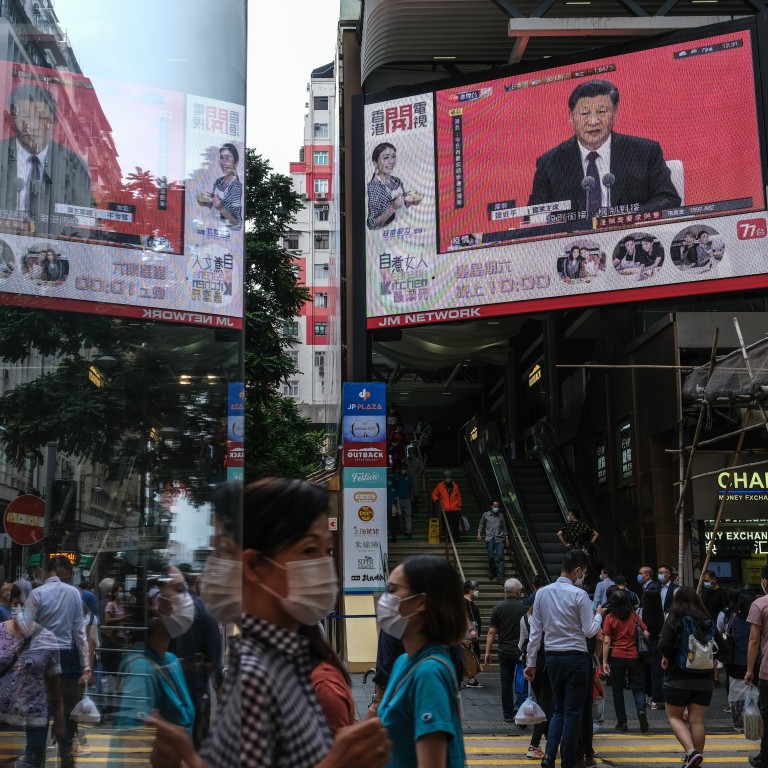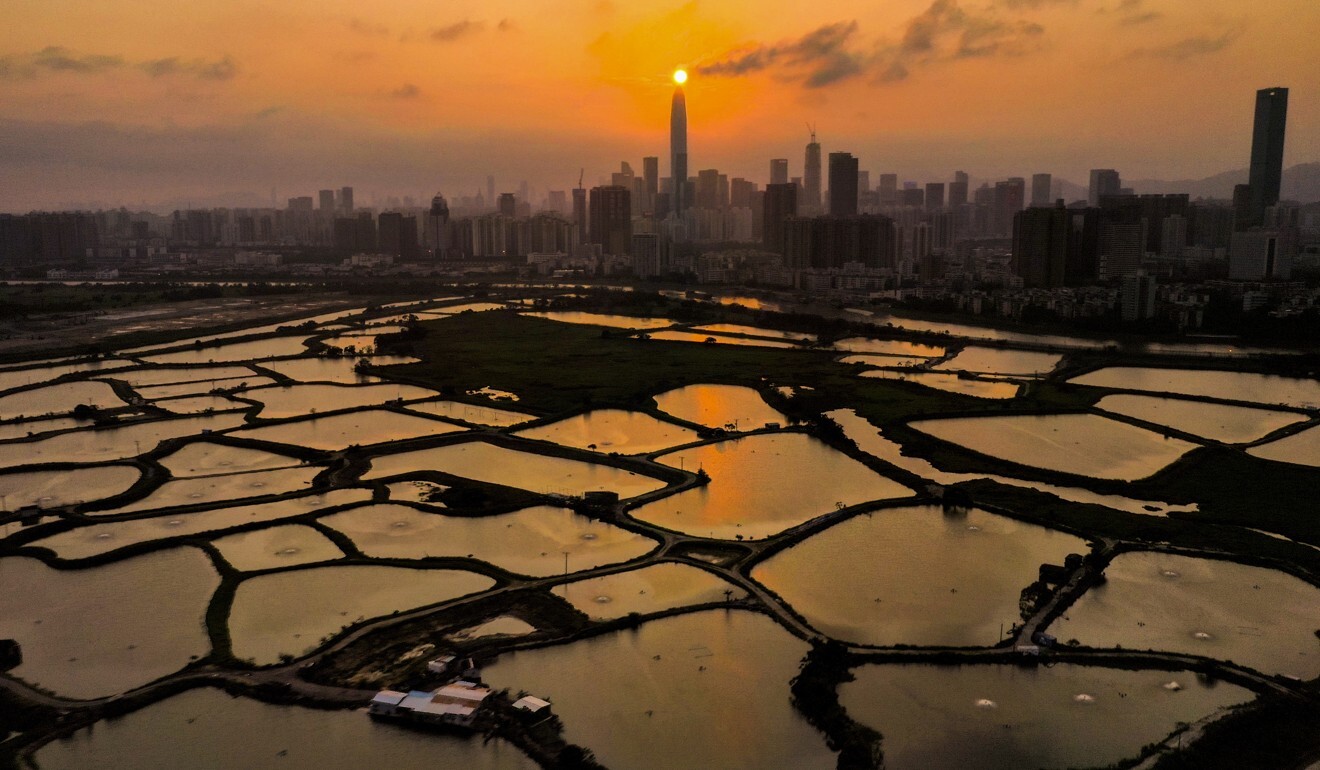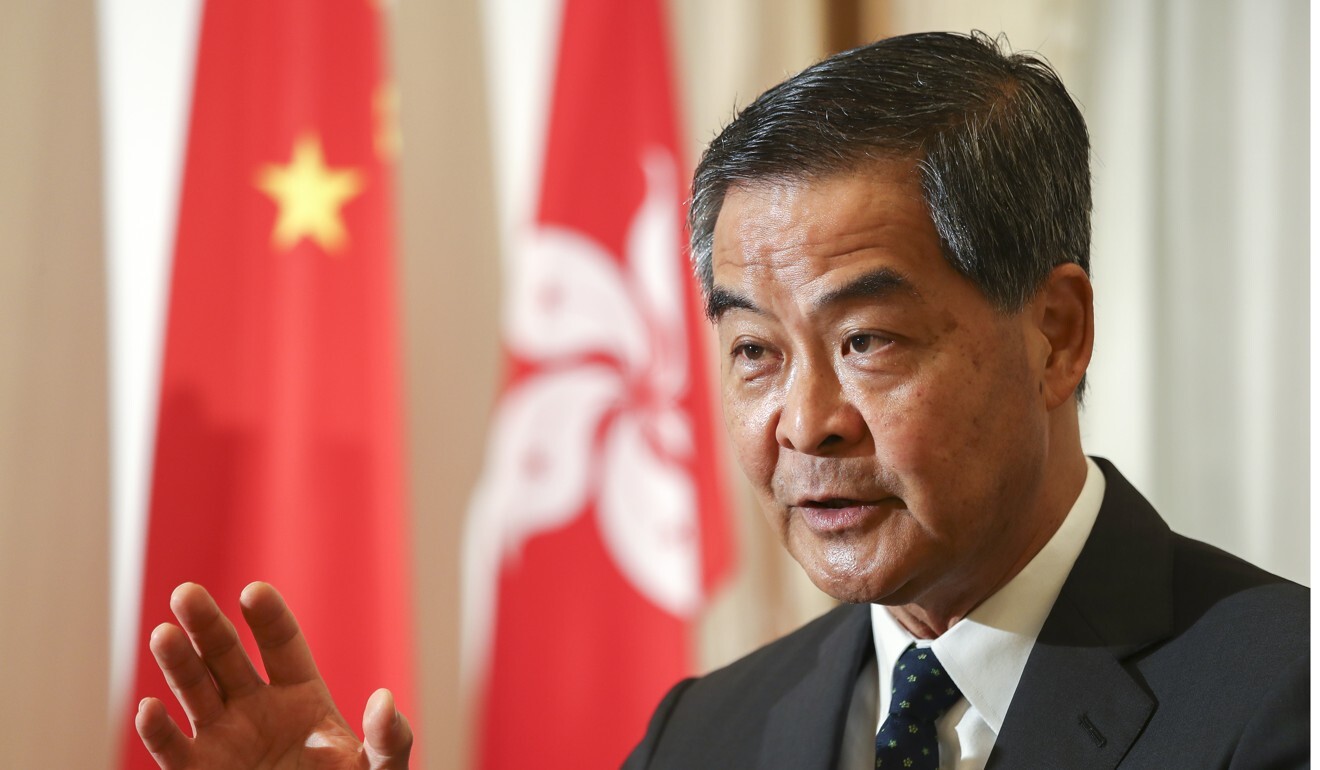
Hong Kong has nothing to fear from surging Shenzhen, officials say, though city must remain proactive, seize opportunities
- Finance secretary, former chief executive among those urging residents to seek ways to maintain edge in wake of speech by President Xi Jinping
- New initiatives for mainland neighbour, meanwhile, suggest an increased emphasis on areas for which Hong Kong has long been known
Hong Kong still has a significant role to play in China’s future goals, senior officials have declared, even as surging Shenzhen has been marked as an innovation powerhouse and model of economic reform by the country’s leader.
But former chief executive Leung Chun-ying – now vice-chairman of political advisory body the Chinese People’s Political Consultative Conference – stressed that Hongkongers must take a more proactive role rather than wait for opportunity to knock.
Financial Secretary Paul Chan Mo-po added Hong Kong should stay vigilant in maintaining its edge and be willing to ask itself if it was keeping pace with mainland China’s rapidly expanding economy.

The positive tone set by Leung and Chan comes amid concerns that Hong Kong could find itself marginalised after President Xi Jinping hailed Shenzhen’s role as an “important engine” of the Greater Bay Area project during a Wednesday speech that lavished praise on the southern Chinese city as it celebrated the 40th anniversary of its special economic zone.
Four days after Xi’s visit, state planning agency the National Development and Reform Commission followed up on Sunday by revealing 40 initiatives aimed at empowering Shenzhen as a pilot zone for further economic reform.
Many of the initiatives, including becoming more market-oriented, opening itself to greater foreign investment and building up its financial and capital markets as well as legal and arbitration services, are areas of existing strength for Hong Kong.
But Leung said Shenzhen becoming stronger in those areas should not be seen as a threat.
Can Hong Kong keep its edge among the many neighbouring cities? Is our development in the right way, and is it fast enough
“Hong Kong’s edge is still strong in the Greater Bay Area and it is another important engine [in the area],” Leung said in a radio show on Sunday, referring to Beijing’s ambitious goal to turn the city, Macau, Shenzhen and eight other Guangdong municipalities into a technology and financial hub rivalling California’s Silicon Valley by 2035.
“The more engines the better if we want to boost the development of the Greater Bay Area, or China, which is a huge plane.”
Leung said no other cities in the world shared the special relationship enjoyed by Hong Kong and Shenzhen, and he believed the pair could complement each other in helping the country’s development.
Echoing Leung’s point, finance chief Chan said both cities were learning from each other despite the competition.

Writing on his weekly blog post, Chan noted that every city and economy has its own unique development path, as well as obstacles and bottlenecks.
Since 1980, Shenzhen’s gross domestic product (GDP) has skyrocketed from 270 million yuan to 2.7 trillion yuan (US$403 billion) last year. During the same period, Hong Kong’s GDP has climbed from HK$140 billion to HK$2.9 trillion (US$348 billion).
“Perhaps what we really need to ask is, has Hong Kong brought its edge and potential fully into play?” he asked.
Long-reigning king of southern China, Hong Kong looks north to a possible usurper
He added that Hong Kong had seized opportunities offered by the mainland’s opening-up policies, which led to rapid economic growth in the 1980s and 1990s. But after 2000, the city missed a chance to develop its innovation and technology sector, despite resources being poured into those areas in recent years.
“Mainland China’s economy has continued to grow. Can Hong Kong keep its edge among the many neighbouring cities? Is our development in the right way, and is it fast enough?”
Hong Kong’s No 2 official Matthew Cheung Kin-chung, meanwhile, said the city needed to speed up its integration with mainland China.
Xi calls on more young Hongkongers to work, study, live in mainland China
He stressed his hope that Hong Kong teenagers would learn to understand, respect and love their country, saying he expected the city’s schools to do a better job of educating students about national security and the anthem.
Leung also said Hongkongers, especially young people, must learn how to tap the opportunities brought by Shenzhen and the Greater Bay Area, particularly given the massive difficulties facing jobseekers over the past year.
Leung said Hongkongers must actively seek new clients across the border instead of waiting for the opportunity to come to them.


